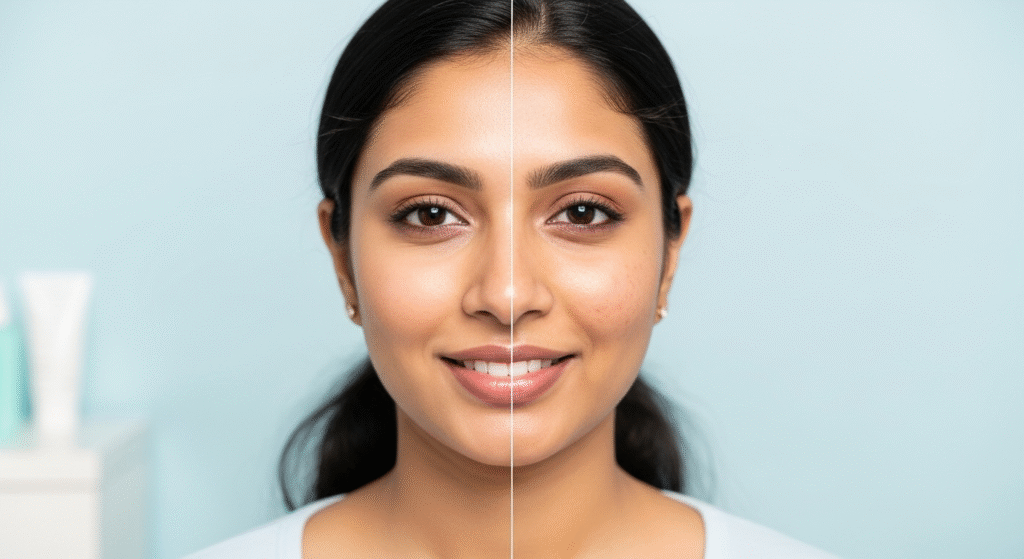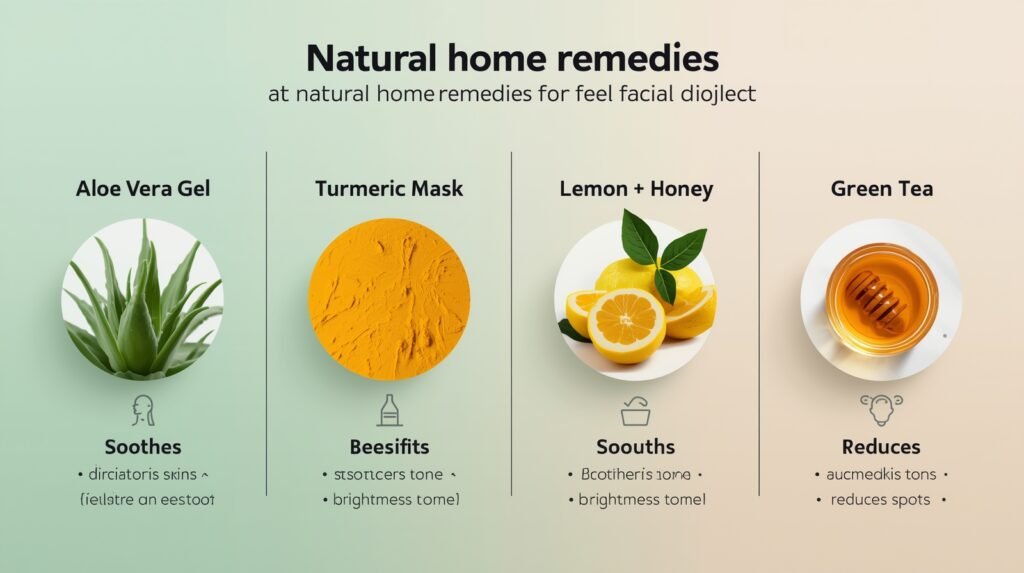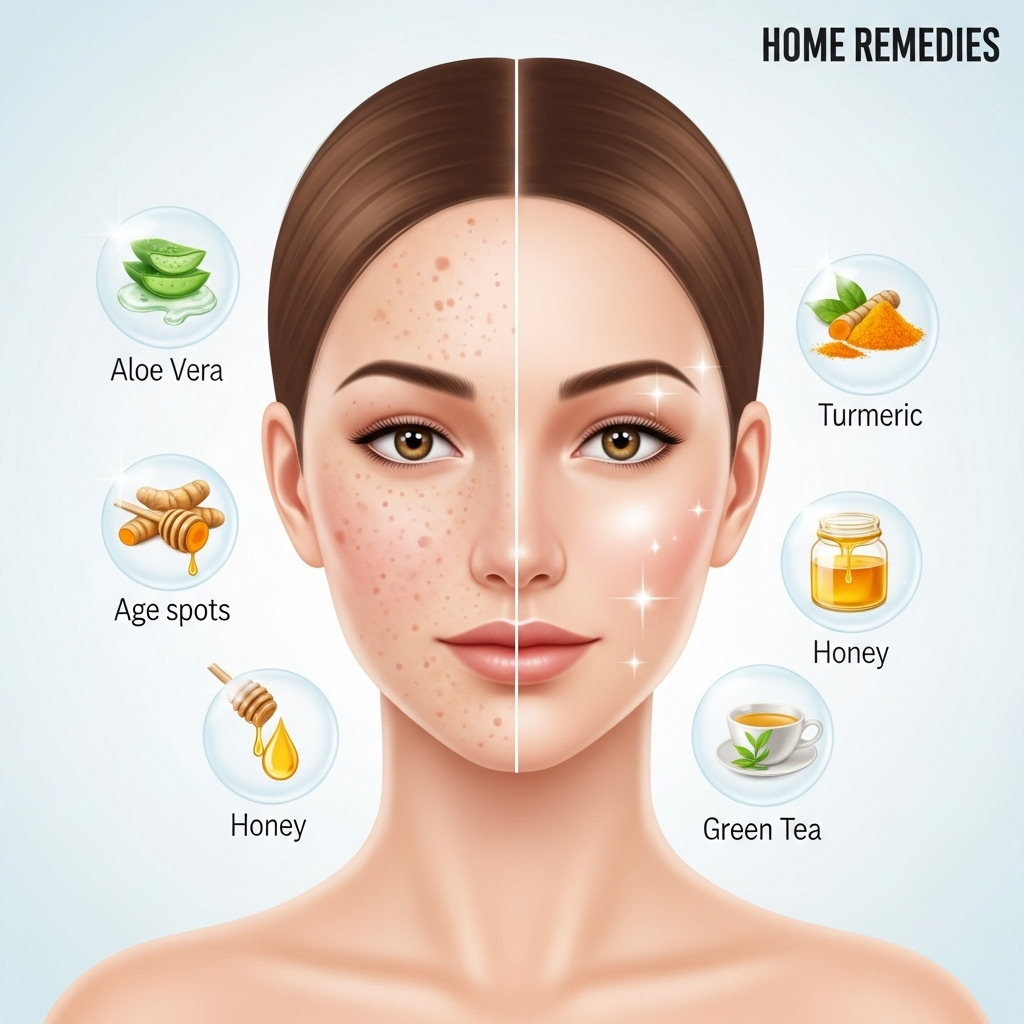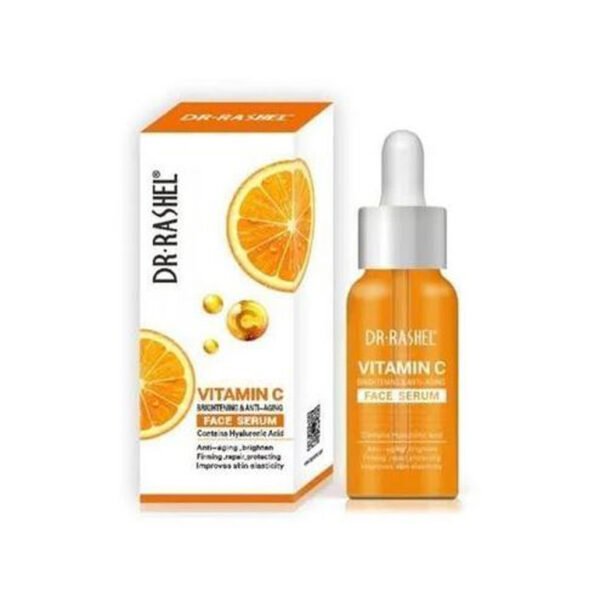Everyone wants their face to be clear and glowing, but sometimes dark spots or blemishes appear on the face. This uneven tone is called pigmentation. While it’s not dangerous, it can make the skin look dull and lifeless—and no one likes that.
I’m a skin specialist and meet people daily who suffer from dark spots. The good news is that pigmentation is treatable; with proper care, skin can become bright and even again.
Our skin color is made from a pigment called melanin. When this melanin builds up in excess, hyperpigmentation occurs—brown or grayish spots appear on the skin, especially on the cheeks, forehead, and nose.
This problem occurs more often in women and has several common causes, such as sun exposure, hormones, or acne scars.

☀️ Why Does Pigmentation Occur?
Here are the most common causes, simply put:
- Sun exposure: UV rays make melanin more active.
- Hormonal changes: Pregnancy or taking birth control pills can cause melasma.
- Post-pimple marks: Dark marks remain after acne heals.
- Aging: As we age, skin repair slows, and age spots appear.
- Genetics: Some people’s skin naturally produces more melanin.
👀 How It Appears
Pigmentation often appears as:
- Brown or gray patches on the face
- Uneven tones that don’t fade easily
- Blemishes left after pimples
If you’re unsure, consult a dermatologist; they will confirm the type.
Doctors’ Treatment
Treatment is different for each individual, but some popular and effective options include:
1. Chemical Peels
This is a mild acid treatment that removes dead skin layers, revealing a new glow.
2. Laser Treatment
Laser reduces dark spots by breaking down melanin. It’s a bit expensive, but safe when used by a professional dermatologist.
3. Topical Creams
Doctors prescribe creams containing Vitamin C, Kojic acid, Hydroquinone, or Retinoids.
These have a gradual effect, so patience is required.
4. Microdermabrasion
A gentle polishing process that removes the upper skin layer, leaving it smooth and glowing.
Home Remedies That Work

If pigmentation is mild, even natural care can make a difference:
- Aloe Vera Gel: Natural soother, gradually fades dark marks.
- Turmeric Mask: Mix turmeric and milk/rose water and apply; brightens skin.
- Lemon + Honey: Combination of vitamin C and moisture; reduces dullness (but don’t apply in the sun).
- Green Tea: Applying cool green tea after sipping reduces UV damage.

Daily Habits That Can Help
- Apply sunscreen every day, even if it’s at home.
- Avoid direct sunlight between 10 a.m. and 4 p.m.
- Don’t scrub your face excessively; gentle cleansing is better.
- Eat fruits and vegetables rich in vitamin C.
- Drink plenty of water—hydration keeps skin healthy.
When Should You See a Doctor?
If pigmentation suddenly increases, the color darkens, or something unusual appears, consult a dermatologist.
Final Thoughts
Pigmentation isn’t a permanent problem. It’s just a sign that your skin needs extra care.
If you use sunscreen, monitor your diet, and seek professional advice, your skin will definitely improve.
Healthy skin doesn’t come from perfection, but from consistency.
Give your skin a little time every day—it will restore your confidence.
Benefits of Vitamin C Serum
Vitamin C Serum is a powerful antioxidant for your skin that reduces pigmentation, fades dark spots, and gives your skin a natural glow.
With daily use, this serum makes the skin bright, smooth, and youthful.
If you also want flawless and glowing skin, order now from the link below and feel the difference in just a few days.

✨ Key Benefits
- Reduces pigmentation and dark spots
- Provides a natural glow to the skin
- Makes the skin bright, smooth, and young
- Improves overall texture with regular use
💧 How to Use
- Clean your face properly before applying
- Take 2–3 drops of serum and gently massage on skin
- Use it daily in the morning and evening
- Apply moisturizer after serum for best results
Vitamin C Glow Face Serum 50ml Ultra BrightCare
Whitening, Moisturizing And Anti Wrinkle
Vitamin C Face Serum Is A Thin And Extremely Efficient Serum That Is Easy To Use
It Will Aid In The Fading Of Sun Spots And Discoloration, The Refinement Of Skin Texture, The Reduction Of Wrinkle Production, And The Minimization Of Existing Wrinkles
All Skin Types
Disclaimer: Before Using A New Cosmetic Product, Try A Test On A Small Area Of Your Skin. If You Have A Specific Allergy Or Sensitivity, Check The Ingredients To Avoid A Reaction. Always Read Warning Labels And Directions On The Package For Using Any Cosmetics.

